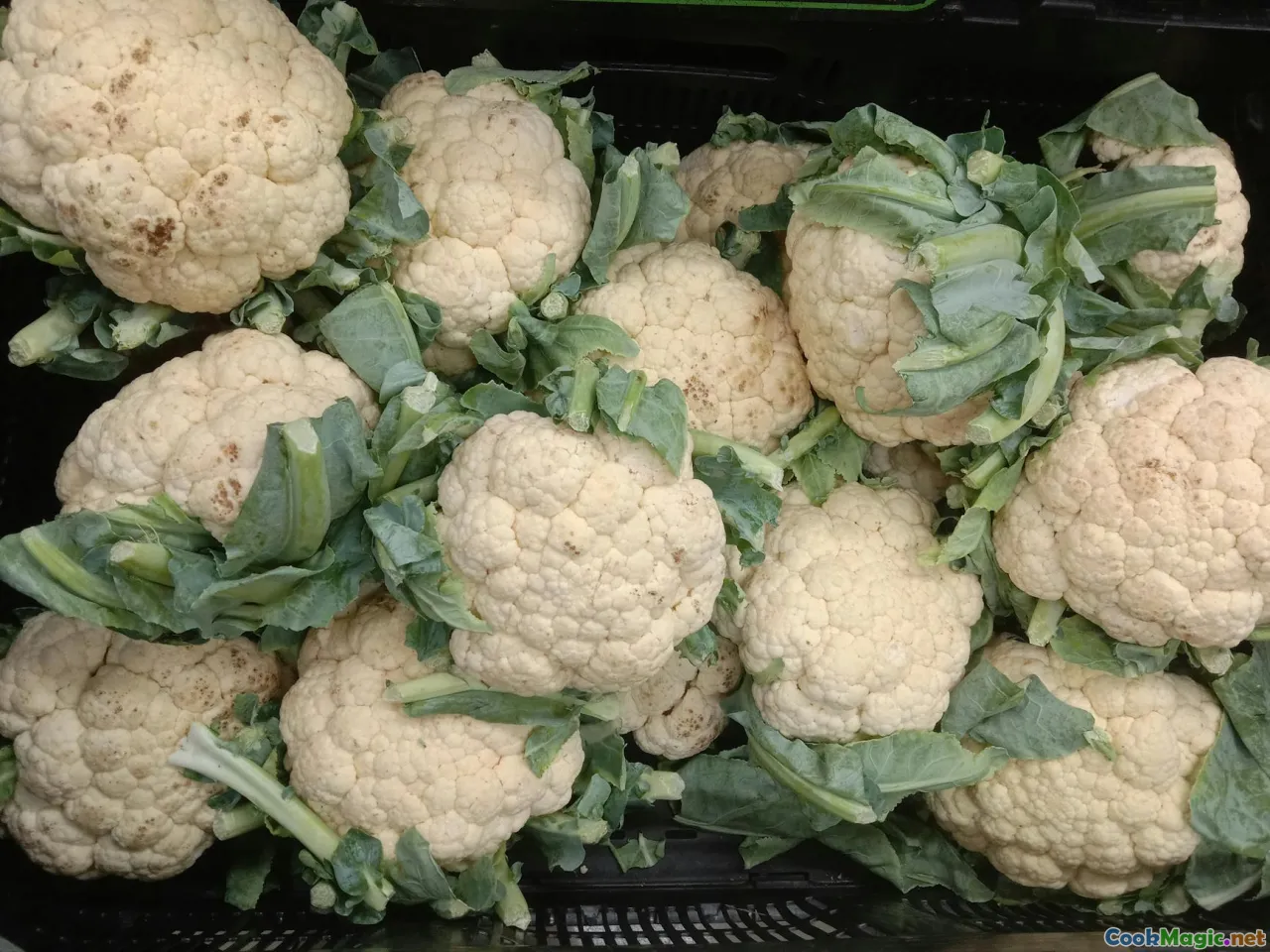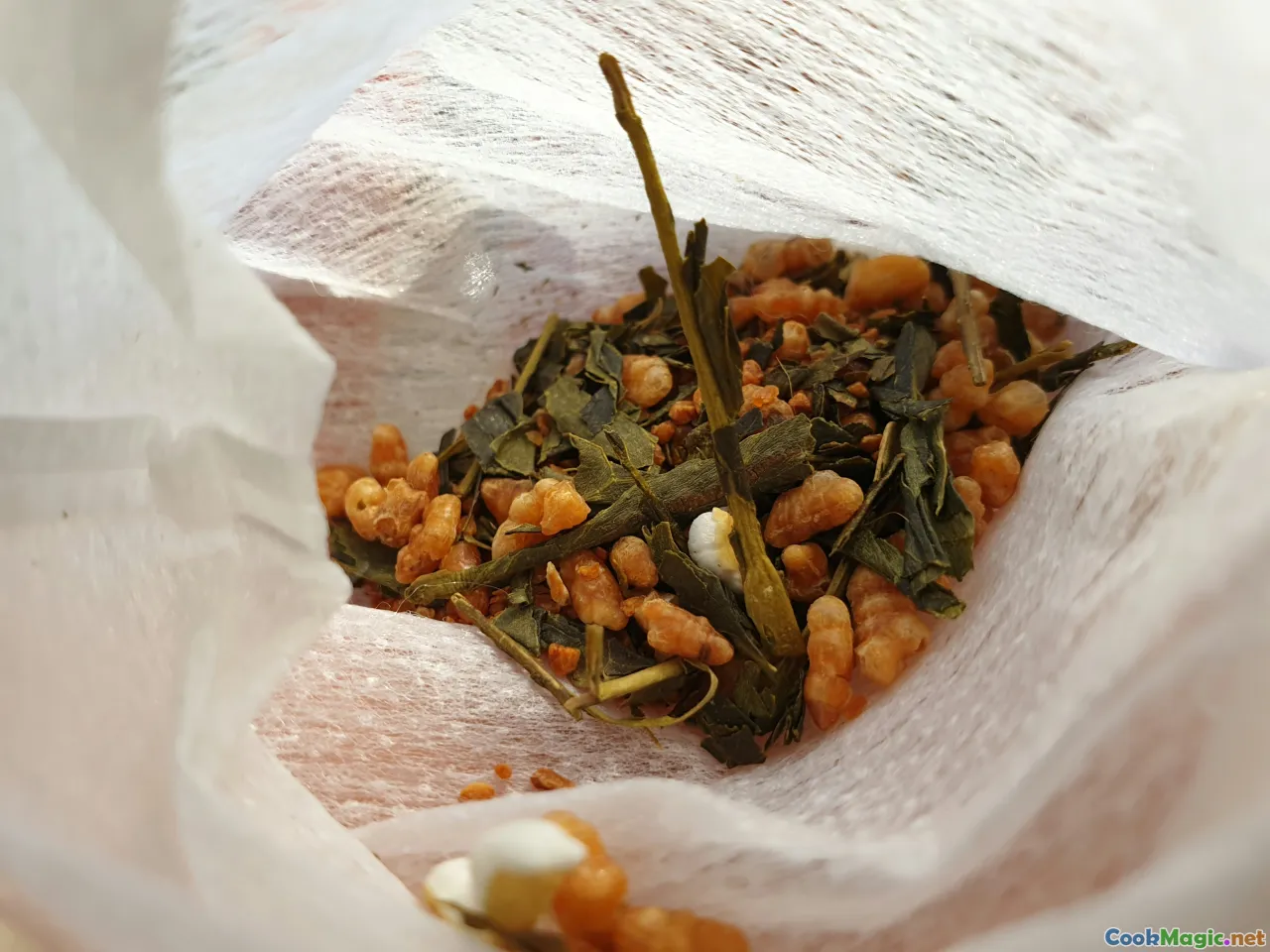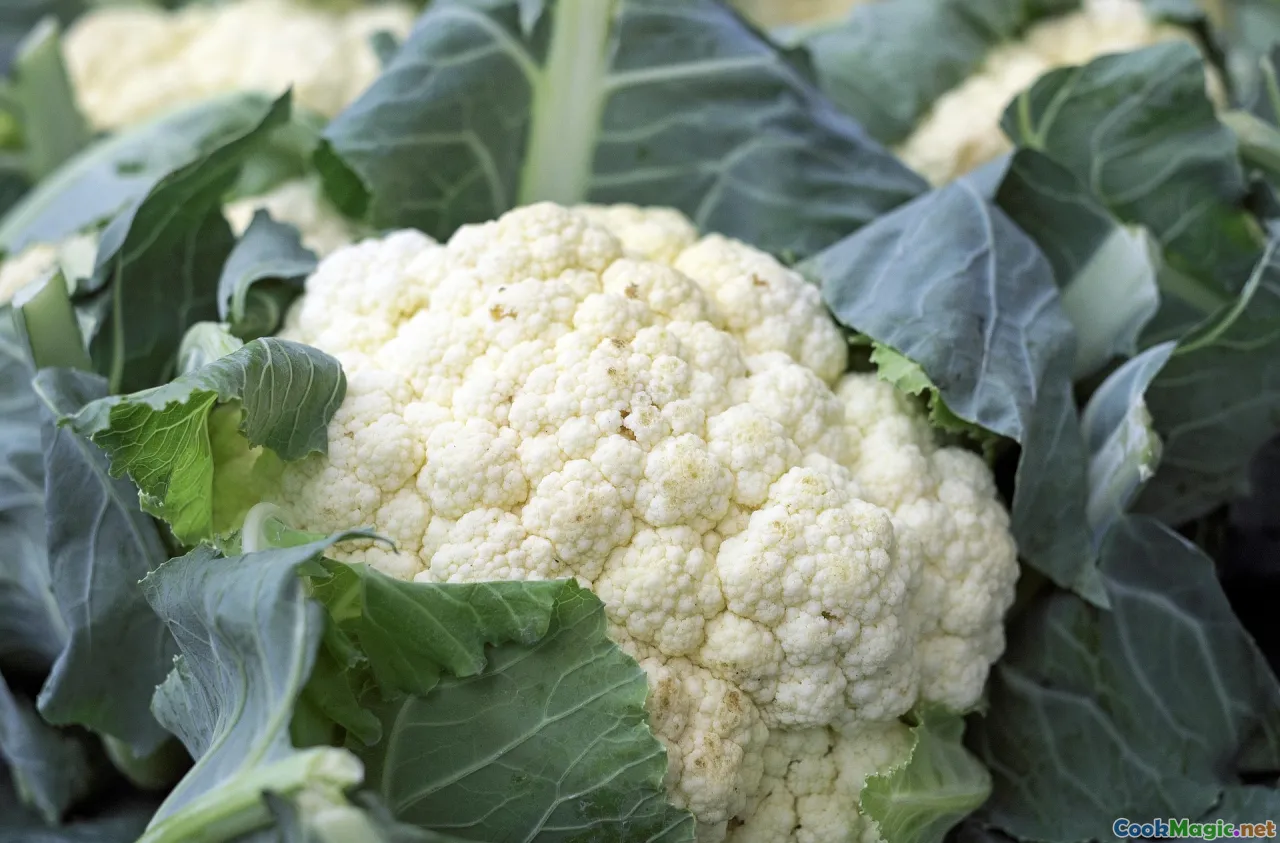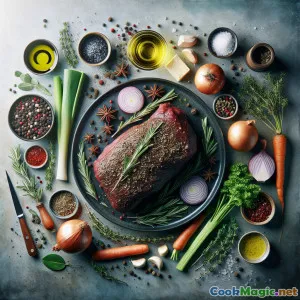
Geriebener Blumenkohl-Hash: Äthiopische Dulet-Inspiration
(Shredded Cauliflower Hash: Ethiopian Dulet Inspiration)
(0 Bewertungen)0
1,063
August 23, 2025
Problem melden
Zutaten
-
400 grams Blumenkohl
(Riced or grated, preferably fresh)
-
1 medium Rote Zwiebel
(Fein gewürfelt)
-
1 medium Paprika
(Any color, finely chopped)
-
1 small Grüne Chili
(Deseeded and minced, adjust to taste)
-
2 stalks Frühlingszwiebeln
(Dünn geschnitten)
-
2 cloves Knoblauch
(Fein gehackt)
-
1 teaspoon Gemahlener Kreuzkümmel
(Provides depth and earthiness)
-
1 teaspoon Geräuchertes Paprika
(Adds color and subtle smokiness)
-
1 teaspoon Berbere-Gewürzmischung
(Traditional Ethiopian spice blend, or use chili powder)
-
0.75 teaspoon Salz
(Nach Geschmack)
-
0.5 teaspoon Schwarzer Pfeffer
(Nach Geschmack)
-
1 small bunch Frischer Koriander
(Gehackt, zum Garnieren)
-
2 tablespoons Sonnenblumenöl
(Neutrales Öl oder ein beliebiges geschmacksneutrales Öl)
-
2 wedges Zitronenschnitze
(Zum Servieren)
(Riced or grated, preferably fresh)
(Fein gewürfelt)
(Any color, finely chopped)
(Deseeded and minced, adjust to taste)
(Dünn geschnitten)
(Fein gehackt)
(Provides depth and earthiness)
(Adds color and subtle smokiness)
(Traditional Ethiopian spice blend, or use chili powder)
(Nach Geschmack)
(Nach Geschmack)
(Gehackt, zum Garnieren)
(Neutrales Öl oder ein beliebiges geschmacksneutrales Öl)
(Zum Servieren)
Nährwerte
- Portionen: 2
- Portionsgröße: 1 Teller (250g)
- Calories: 210 kcal
- Carbohydrates: 0 g
- Protein: 6 g
- Fat: 10 g
- Fiber: 7 g
- Sugar: 7 g
- Sodium: 600 mg
- Cholesterol: 0 mg
- Calcium: 105 mg
- Iron: 2.7 mg
Anweisungen
-
1 - Prepare Cauliflower Base:
Wash, core, and either grate or rice the cauliflower into small, rice-sized pieces.
-
2 - Prepare Vegetables:
Finely dice the onion, pepper, mince the garlic and chili if using, and slice spring onions.
-
3 - Sauté Aromatics:
Heat sunflower oil in a large non-stick pan over medium heat. Add onions, cook 2 mins then add garlic, green chili, and bell pepper. Sauté until softened.
-
4 - Add Spices:
Sprinkle in cumin, smoked paprika, berbere, and stir for 30 seconds until fragrant but not burnt.
-
5 - Cook Cauliflower:
Stir in the riced cauliflower, add salt and black pepper. Stir-fry on medium-high heat for 5-8 mins until golden and just tender.
-
6 - Finish and Garnish:
Stir in spring onions, adjust seasoning, and remove from heat. Serve garnished with fresh coriander and lemon wedges.
Wash, core, and either grate or rice the cauliflower into small, rice-sized pieces.
Finely dice the onion, pepper, mince the garlic and chili if using, and slice spring onions.
Heat sunflower oil in a large non-stick pan over medium heat. Add onions, cook 2 mins then add garlic, green chili, and bell pepper. Sauté until softened.
Sprinkle in cumin, smoked paprika, berbere, and stir for 30 seconds until fragrant but not burnt.
Stir in the riced cauliflower, add salt and black pepper. Stir-fry on medium-high heat for 5-8 mins until golden and just tender.
Stir in spring onions, adjust seasoning, and remove from heat. Serve garnished with fresh coriander and lemon wedges.
Mehr über: Geriebener Blumenkohl-Hash: Äthiopische Dulet-Inspiration
Dulet Inspired Cauliflower Hash: A Modern Vegan Take on an Ethiopian Classic
Dulet, a beloved Ethiopian dish made with minced tripe, liver, and aromatic Berbere spices, has long been a staple in the bustling streets of Addis Ababa. In this uniquely English-leaning twist, we pay homage to the complex and intoxicating flavors of Dulet—substituting hearty vegetables for offals—to craft a breakfast hash that dazzles with color, heat, and texture.
The Essence of Dulet—Without Meat
While traditional dulet is neither vegan nor vegetarian, its spirit lies in the exhilarating combination of spices, fiery chilies, and the hearty, 'meaty' feel of minced mains. Riced cauliflower echoes the texture and puckish chew of meat but brings freshness, moisture, and lightness. Partnered with onions, peppers, and a zesty pinch of British clarity, it’s an unforgettable hash for vegans and omnivores alike.
A Cross-Cultural Morning Table
Culinary fusions tell stories. Ethiopia’s dulet meets the unfussy, satisfying hashes of English breakfasts—an intersection of continents and traditions. Though it may sound unconventional to serve Berbere spices in an English breakfast context, the result is an invigorating plate that gleams with the golden hues of turmeric and paprika, emulating the crackle and warmth of dulet without the heavier, more acquired tastes of organ meats.
With the bench strength of cauliflower at the heart, this hash transforms the reliable morning vegetable into a spicy sensation that's sustainable, gluten-free, and light enough for any time of day. Riced or grated, cauliflower offers bite and readily soaks up the flavor profile of the spice blend—essential for satisfying even committed meat lovers.
Tips for Making the Best Cauliflower Hash
-
Ricing the Cauliflower: For texture close to dulet, use a food processor or the coarse side of a box grater to achieve fluffy, rice-like pieces. Avoid overprocessing—from rice to mush is just a quick pulse away!
-
Spicing and Searing: Fry your spices for maximum aroma. Berbere is bright and complex—leave it in the oil just long enough for the scents to bloom but not so long that it burns.
-
Bring Color and Contrast: Don’t skimp on spring onions and coriander for fresh flare. Consider a side of tangy pickled onions, if you wish, to balance richness.
-
Add-ins: Want extra crunch? Toss in a handful of toasted slivered almonds just before serving. Fancy a protein boost? Serve with a dollop of plant yogurt enriched with lemon, or a perfectly fried tofu egg on top.
-
Heat Management: Ethiopian dishes are often spicy. Increase or dial down the green chili to your taste. Berbere’s heat builds slowly, so taste midway through cooking.
Historical Roots and Modern Appeal
English comfort foods have always been hearty affairs, favoring hashes that hum with potatoes or corned beef. By letting cauliflower take center stage, this recipe modernizes the notion of hash while honoring the Ethiopian principle of building layers of balanced, bold flavors. As plant-based eating continues to surge, such globally mindful renditions answer the craving for variety and health.
Cultural Connection
Ethiopian dulet is more than food; it’s often a celebratory centerpiece—a treat to sharpen the senses. Adapting this closely-guarded classic in an English context respects the dish’s heritage while acknowledging the adaptability of world cuisines for new dietary preferences.
Unique Aspects
- Fusion of cuisines: British sensibilities and Ethiopian flair in one hash
- Plant-based creativity: Meatiness from plants, no compromise on depth
- Sustainable and nutritious: Loaded with fiber and vital nutrients, yet energizing enough for breakfast or supper.
Thoughts
Cooking like this invites curiosity into the kitchen—and at your table. Whether you wake up to a gray British morning or break your fast amidst the aroma of Berbere, Dulet Inspired Cauliflower Hash will always land somewhere delightfully in between. If food is a bridge, let this plate carry you heartily across worlds, spices accompanying.
Adventurers, spice-lovers, and brunch fiends, this is your invitation: try the hash, share it, and toast the long, winding road between food memories and playful innovation.

























